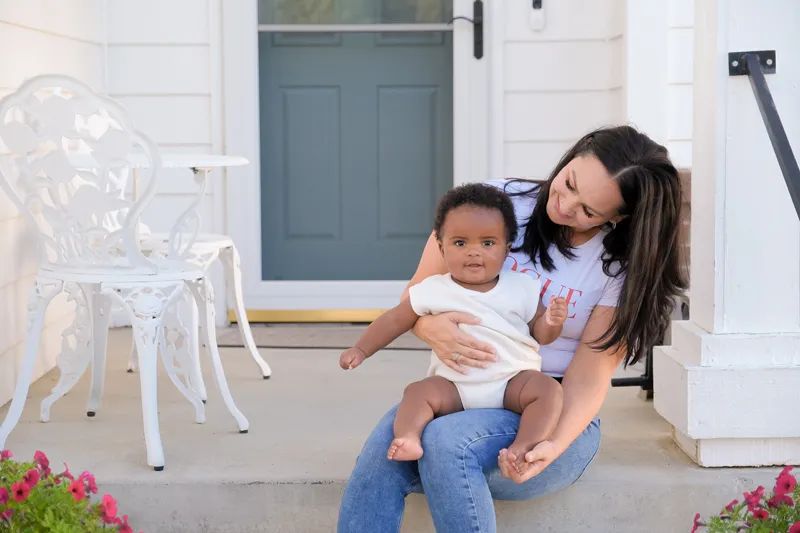
Reinventing Angie Stiller
From homelessness and heartache to a strong mom and business owner
Editor’s Note: This story contains descriptions of attempted rape and violent assault.
Watching Angie Stiller cradle her baby boy in her arms, you can’t help but feel the love. It’s evident in the way she coos at him and gives him a look of perfect gratitude. Around her neck is a simple gold chain with the word “Mama” hanging from it on a pendant.
“I always knew I was going to be a mom,” Angie says. “I just didn’t think I would be a single mom. But honestly, I’ve never been more fulfilled in my entire life.”
What’s harder to see — simmering under the surface of this self-proclaimed mama bear — is a woman who bears the scars of her past. She’s been through hell and back just to be where she is today —a woman navigating life as both a mom and the successful owner of an insurance agency.
“I would say if I could write it on a fortune cookie, Angie Stiller would be somebody who is always trying to see the best in people, even when it is really hard,” she says.
She’s had a lot of experience with that over her four decades of life. Trying to see the best in others started when she was just a kid.
“My family was homeless, several times,” she says. “We lived in pay-by-day hotels and there were four of us kids and my mother and her boyfriend at the time.” Her mother’s boyfriend struggled with addiction. Her mother battled mental health issues. “We were on welfare,” Angie adds.
While she remembers a happy childhood, she says she didn’t know any other way. There were summers when her mom, working as a hairdresser, would drop her and her three siblings off at a nearby park where they’d play and dumpster dive during the day. The four of them dined on happy meals at lunch. Sometimes they’d live at a nearby KOA campground.
“I can see now how dangerous some of it really was,” she says. Through it all, Angie, as the oldest, considered herself the protector. She made it her mission to find a way out of poverty, despite what were at times uphill battles.
“I was blind, really. I couldn’t see very well but I never had glasses so I couldn’t study,” she says. On top of that, she adds, “I was sleeping on my grandmother’s couch.” She admits to coming dangerously close to not being able to finish high school. She credits a teacher for throwing her a lifeline and helping her get her diploma.
Then came a pivotal moment. At 18, she remembers walking into a Farmer’s Insurance agency. The district office in Yakima, Washington, where she grew up, was hiring.
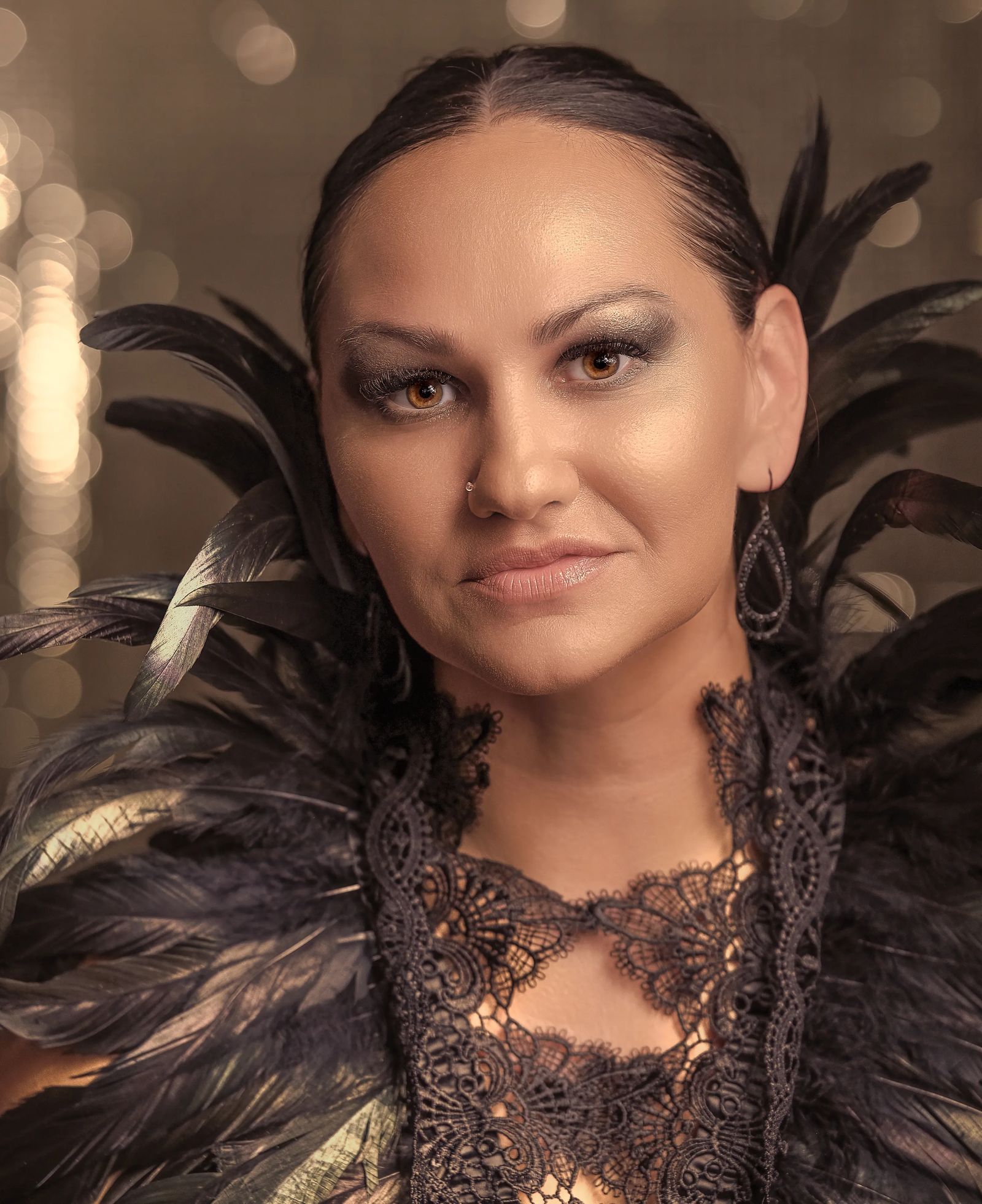
“She came in to apply and she wanted to be an agent,” says Kim Cummins, the district manager who ended up hiring her. While she was far too young to be an agent, Kim says, “Just the tenacity to come in as an 18-year-old and be willing to get on the phone to make sales calls — she could see herself owning her own business.”
It wasn’t long before Angie enrolled in Yakima Valley Community College.
“I was trying to show them that there was a way out,” Angie says of her brother and sisters.
“This poor girl who is trying, trying, trying just came across all these roadblocks,” Kim says. “I just felt like she needed a hand, someone to give her a chance.”
“I just loved her the minute I met her,” Kristina Wagner says. At the time, Kristina worked at the district office, helping to oversee operations and the company’s 22 agents. “I just thought, ‘Wow, this kid has a history.’ We all knew she wanted to get the heck out of Yakima.”
Things were starting to look up. Angie got her own apartment — a little one bedroom, one bath in a decent neighborhood.
“I was really proud of where I was in my life,” she says. “I was on my way, I thought, to breaking some transgenerational curses, so to speak.”
She hadn’t lived there long when, on Nov. 5, 2004, she pulled into her apartment parking lot only to find a vehicle parked in her spot. She felt a little unsettled but kept walking to her door. She had just gotten inside when a man knocked on the screen door behind her.
“It was a guy who had been painting the outside of my apartment complex,” Angie says. “I immediately knew something was wrong.”
The man’s coloring was off. Angie noticed the strong smell of liquor on his breath. His red-rimmed, bloodshot eyes had a far-away gaze.
“He said, ‘Can I come in? Do you have just a minute for Jesus?’ I remember looking down. This was the moment,” Angie says. “I looked down at the door and he looked down too. We both realized my screen door wasn’t locked. He immediately came in and front rushed me.”
After trying to kiss her, he threw Angie down on her sofa.
“I can tell you I fought for my life,” she says, adding that the man started to strangle her.
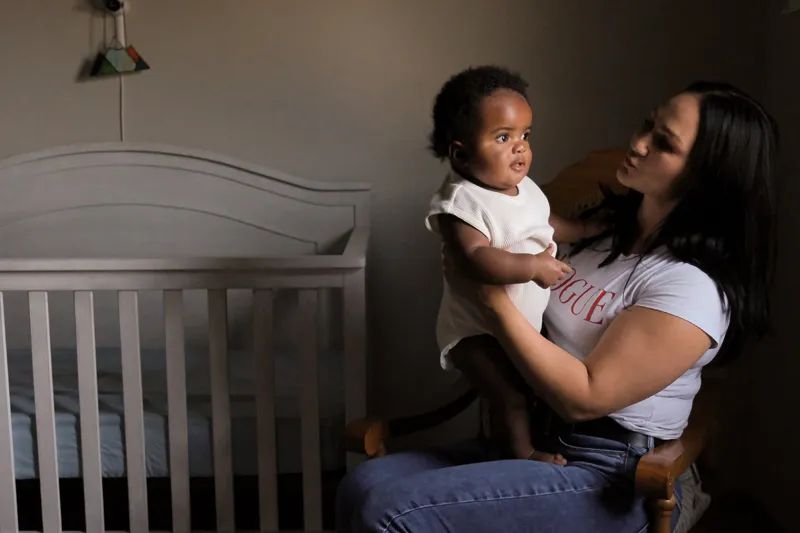
“When someone has their hands around your throat and you think you are dying, one part of your brain is in survival mode and another part of your brain almost goes into rehashing things. I remember thinking ‘Gosh, Mom.’ I just wanted my mom to know that I loved her,” Angie says. Eventually, she blacked out. When she came to, the man was clawing at her belt, trying to take her clothes off.
“It was the craziest thing. He tried to take me back into my bedroom and I just fought him the whole way,” Angie says. “I was very calm though. I said, ‘I don’t really want you in my apartment anymore.’ I settled down a little bit. It was interesting. He settled down when I settled down.”
Angie says she saw something click in the man. “He told me, ‘Don’t call the cops.’ And then he said, ‘I’m really sorry. I took some narcotics today.’” As the man started to back out toward the door, Angie remembers telling him, “I am going to sit down in my bathroom and shut the door.”
The man broke her glasses in the struggle, so when she grabbed a cell phone as she went into her bathroom, she didn’t realize until after the man left that it was actually his.
“I called the cops and they picked him up that day,” she says.
Ronald Vernon Smith was booked on attempted rape charges. In the days and weeks that followed, police were able to match his fingerprints to a rape and murder in Woodland, California. That crime had gone unsolved for five years because Smith’s prints hadn’t yet been entered into criminal databases.
“The motive for those crime junkies out there was exactly the same,” Angie says. “He had stalked me. I didn’t know. He had made up his mind that I would be his victim.”
Knowing that his victim in California, Joanne Marie Crider, didn’t live through her attack, Angie says the survivor’s guilt ran deep.
“I told her, ‘Angie, you are here because you were brave enough to fight him,’” her friend Kristina says, adding that because of her, another family got closure. “You got him. That’s something you should be very proud of. Even in your panic, you were a hero.”
“He’ll spend the rest of his life in prison,” Angie says with conviction.
Even with her attacker behind bars, Angie went through bouts of paranoia, seeing Smith lurk around every corner. Looking back, she says, there was the Angie before the attack and the Angie after. They were two very different people.
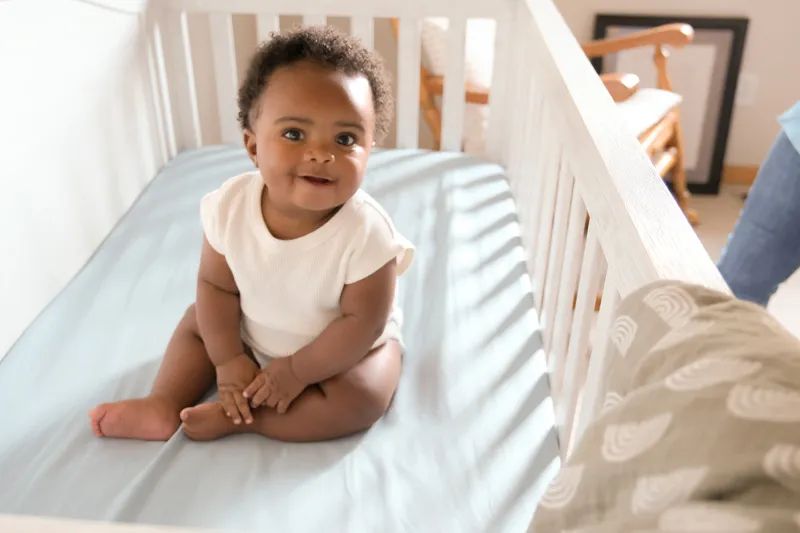
“I had a lot of conversations with God right after it happened,” she says, adding that her anger was intense, as was the urge to self-medicate with alcohol. “I couldn’t understand why God would let something like that happen to me.” In her 30s, she says, “I did a lot of work and a lot of soul searching.” Eventually, she came to forgive her attacker. “I forgave him for me because it was a poison that I was carrying around,” she says.
Ultimately, her old boss Kim Cummins, who had moved to Montana to take a district manager position in Billings, begged Angie to move here. She could see how the attack had changed the girl she had taken a chance on three years earlier.
“Kim encouraged me. She always told me I didn’t have to be my past and I could break those generational curses,” Angie says. “I could be who I wanted to be but it wouldn’t be easy. With her guidance, I was able to finish college and to really try to straighten myself out.”
Angie started working with Kim in the Billings district office of Farmer’s Insurance and lived with her for a few months as she got back on her feet. She got into therapy and Kim and her husband helped Angie finish college at MSU Billings.
“I did tell her at some point, ‘Angie, you thank me and you think I gave you an opportunity and I did but you had to take it,’” Kim says today. “It’s hard to leave your family and leave the life you know and start over.”
Billings proved to be a good fit. Angie met her husband, Blade, at MSU Billings. They married in 2012; two years later, Angie took the giant leap to open her own insurance agency with Farmer’s.
“I was terrified,” she says with a laugh. She took every penny she had in her savings and laid it all down on her dream of business ownership.
“With an insurance agency, there are no assets. You are basically bargaining on people’s loyalty and your ability to keep them happy professionally,” she says, adding she felt the pressure to succeed.
Nine years later, Angie calls herself an “insurance junkie” who boils down her love for her job to having a passion for taking care of people. “If you aren’t protecting your future self and your future life, you’re doing a disservice to your family. I try to educate people on that,” she says. “My entire life, I’ve been so interested in the human condition, how we interact and how we love each other. Protecting other people just makes sense to me.”
Two years ago, Angie started to focus on her own family. She could hear her biological clock ticking. She and her husband tried to have children but were unsuccessful. As she felt what she calls a “pull to be a mother,” she found out her husband didn’t feel the same pull.
“When my ex-husband finally came clean, so to speak, and decided he was no longer interested in being a parent, then I immediately just jumped into action,” she says. They divorced in February of 2022. Weeks later, she contacted an adoption agency that specialized in single parent adoptions. She wrote a profile and hired a photographer to take lifestyle photos, painting the picture of what a great mother she’d be. She was matched with her son’s biological mother that following June.
“When I met Banks, it was life-changing,” Angie says. “When he came, it was a level of Iove I could never have fathomed. He came five weeks early and rocked my whole world, which was perfect. I hopped on a plane. I was out of here within an hour. I just put a bunch of spandex in a suitcase.”
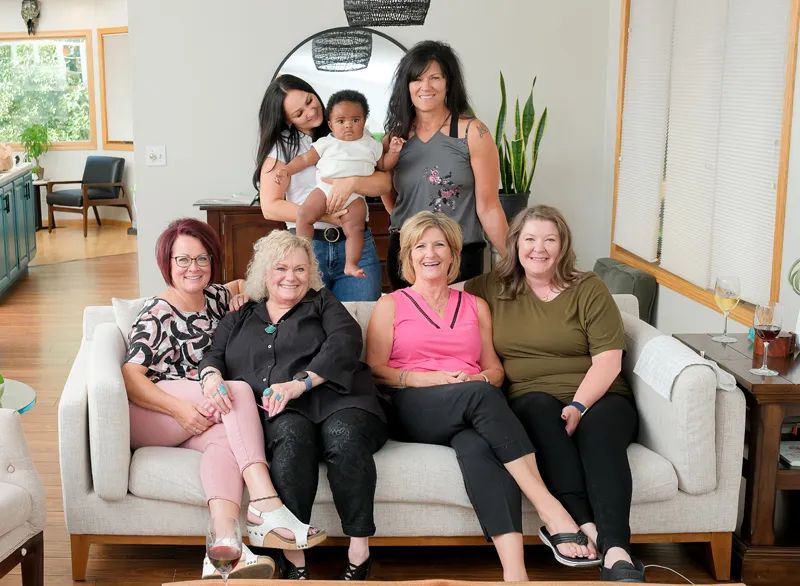
She got into North Carolina at 3 in the morning on Dec. 20, slept in the hospital and met the premie boy she’d name Banks that morning. He spent his first week of life in the neo-natal intensive care unit.
“If I wasn’t crying, I was just staring at Banks,” she says. “I had a mixture of emotions that I think most moms can attest to — awe, gratitude, excitement, just looking at this tiny human being and knowing that his future is now dependent on my ability to create structure and a safe environment for him. It was wild.”
Banks biological mother had just turned 23. “She was just trying to get her life back together,” Angie says. “There’s a huge socioeconomic piece to why she gave him up for adoption. I told her, ‘I’ll be your cheerleader for as long as you’ll allow me.’”
Since Banks was born, Angie has written a handful of letters to his biological mom.
“I told her, I will never fully be able to express in words how my life changed, how much I love this boy and much I will always love her,” Angie says.
As she made the flight home with her new baby in tow, she knew life was going to be different.
“I felt like there was pressure to do it right the first time and then right around month two when I hadn’t really slept at all, I hit my wall,” Angie says. “I was blessed to have a group of women. I call them my sister mothers.”
The 10 women who make up this group swooped in.
“They cleaned my house. They forced me to take naps,” Angie says. “They held me when I was literally standing in the middle of my house melting down saying, ‘I promise I can do this.’”
“She was a complete mess in the beginning. We would laugh. She never slept and she googled everything the baby did,” Kim says. “Banks is going to have quite the experience growing up around so many women.” Kristina adds, “Sometimes, she’ll say, ‘Guys, this is too much.’ We just say, ‘You have to understand how much we care for you and your success is our success.’”
As she braces for this new future, she’s not one to forget her past. Recently, Angie joined the board of Tumbleweed, an nonprofit that focuses on homeless teens.
“If you would have told 13- or 14-year-old Angie who slept in a park?” Angie says of her role with the homeless outreach non-profit. “It feels incredible. I’m just getting started,” she says. “I want Billings to know that these are our children and if you don’t want to see the vagrancy downtown then you better be a part of the solution.”
She’s also spent some time jotting down notes for a potential book, whose working title is “Suddenly Her.” In her book, Angie hopes to take a deep dive into her trauma and the science behind healing. She hopes one day to share her story on a broader platform and maybe even use it in public speaking.
“I want people to know that you don’t have to stay there,” Angie says. “You can witness something. You can be traumatized. You can live through something like this but it’s ultimately your decision whether or not you are going to stay there.”
Most days, you’ll find Angie splitting her time working from home or carting Banks to her office. If she needs to take a call or jump into a meeting, the women she works with never hesitate to be an extra set of arms for the little guy she calls “her main squeeze.” She never takes for granted the sisterhood that formed at the office.
“I just want to wake up every day and be better because I want to show my son what a strong, loving female looks like,” she says. “I’ve learned you can’t take yourself too seriously. A setback is just a set back and it’s OK to have a meltdown and cry about it and then get up the next day and put your blazer on and a pair of pumps if you need to. You just can’t stop.”











